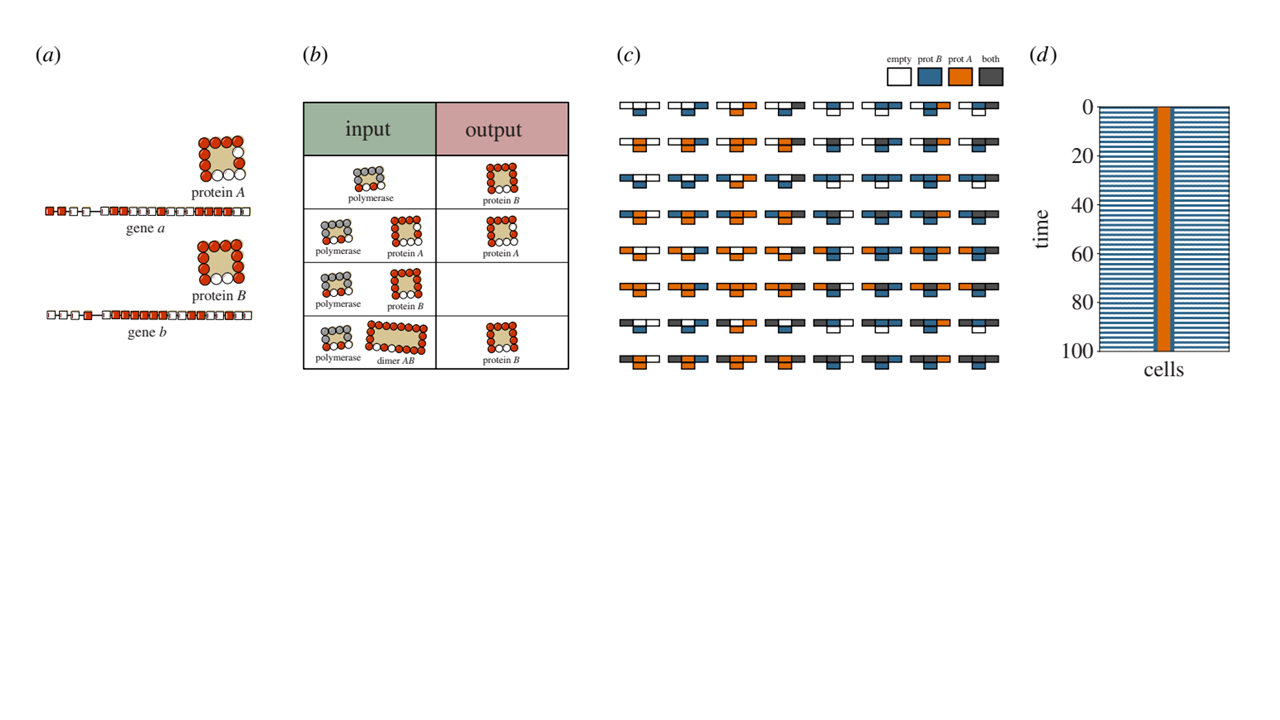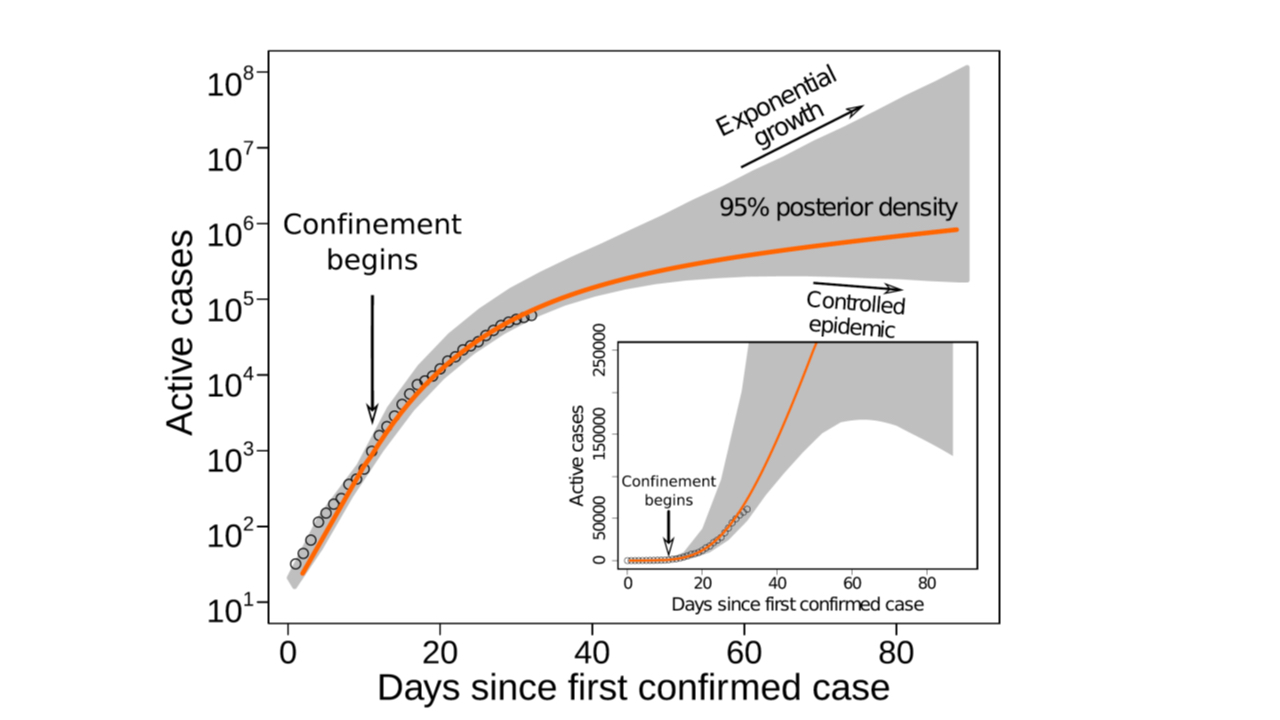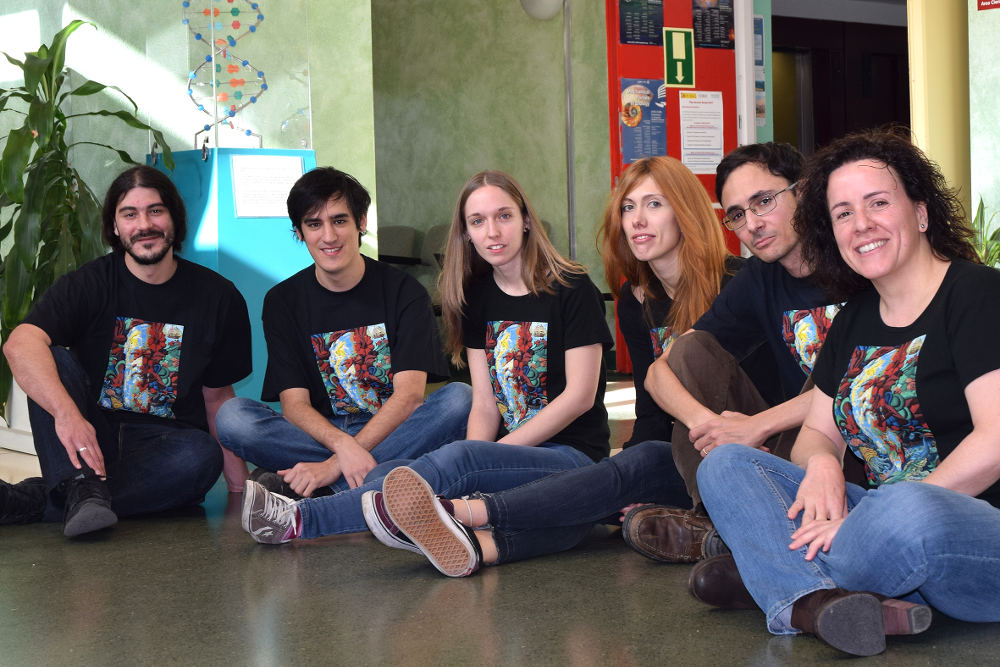Susanna Manrubia
Group Leader
The main interest of our group is the theoretical study of evolutionary systems of different kinds. We develop models inspired by the phenomenology observed in natural systems, chiefly molecular populations, viruses, and interacting agents at the cellular level and up.
Publications
Manrubia S, Cuesta JA, Aguirre , Ahnert, SE, Altenber L., Cano A., Catalán P, Diaz-Uriarte R, Elena S F, García-Martín JA, Hogewe, P, Khatri BS, Krug J, Louis AA, Martin NS, Payne JL, Tarnowski J., Weiß M. From genotypes to organisms: State-of-the-art and perspectives of a cornerstone in evolutionary dynamics Physics of Life Reviews 2021; 38, 55-106LF Seoane Games in rigged economies. Physical Review X 2021; 11, 031058
Castro M, Ares S, Cuesta J A, Manrubia S. The turning point and end of an expanding epidemic cannot be precisely forecast. Proceedings of the National Academy of Sciences USA 2020; 117, 26190-26196
Catalán P, Manrubia S, Cuesta JA. Populations of genetic circuits are unable to find the fittest phenotype as a result of phenotypic bias in a multilevel genotype-phenotype map. Journal of the Royal Society Interface 2020; 17, 20190843
Valdano E, Manrubia S, Gómez S, Arenas A Endemicity and prevalence of multipartite viruses under heterogeneous between-host transmission. PLoS Computational Biology 2019; 15, e1006876
The main research topic of the group is the understanding, modelling and analysis of evolutionary mechanisms. For almost two decades, we have investigated the adaptive dynamics of viruses and RNA populations, collaborating closely with experimental groups and addressing broader problems such as the relationship between genotype and phenotype.
In our most recent research, we have been exploring the topological structure that genotype-to-phenotype maps endow in sequence spaces, and its effects in the dynamics of heterogeneous molecular populations. We have uncovered some universal features of sequence spaces topology which are independent of the definition of phenotype and, therefore, of generic consequences for evolution and adaptation. Our results have highlighted, among others, the extent of entropic effects in microscopic evolution, showing that abundant, sufficiently functional phenotypes, might be much more common in nature than highly adapted, but rare ones. A full understanding of microscopic evolution is important to update current evolutionary theories and to derive useful effective models. In this sense, we have questioned the role played by classical metaphors of evolution, such as smooth fitness landscapes, and suggested they must be substituted by network-based representations.
Our research has turned to epidemiology, based on our broad experience with viral evolution and modelling, as a consequence of the crisis caused by COVID-19. Currently, we are exploring the limits of model-based predictions in the face of empirical data, and the effects of the evolution of pathogens and their adaptation to different containment strategies.
Figure 1. toyLIFE is a multilevel genotype–phenotype map. (a) toyLIFE genotypes are binary strings with promoter and coding regions that, when expressed, yields a lattice folded toy protein. (b) Following toyLIFE’s interaction rules, we obtain gene regulatory networks (GRNs) in the form of a truth table. (c) Each GRN determines, under some propagation rules, a unique cellular automaton with cells in state empty (white), expressing protein A (orange), expressing protein B (blue) and expressing both proteins (grey). (d) These cellular automata give rise to spatio-temporal patterns of gene expression (Catalán et al., 2020).


Figure 2. Fit to data obtained in real time for the daily number of COVID-19 active cases in Spain (from March 1st to March 29th). Despite a reasonable agreement between model and empirical observations in the spreading phase of the pandemic, opposite predictions for the future number of active cases can be derived. The solid line represents the number of infected individuals using best-fit parameters. The vertical arrow denotes March 11th, the day when schools and universities closed. The shaded area represents the 95% predictive confident interval: Its increasing width implies that predictability decays exponentially fast.
.








